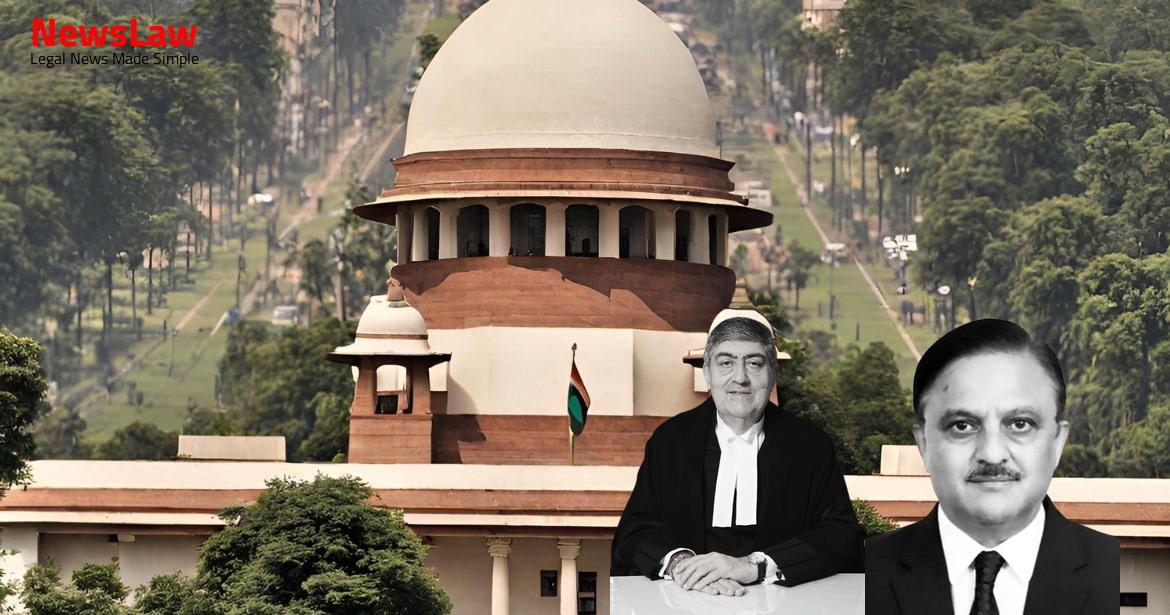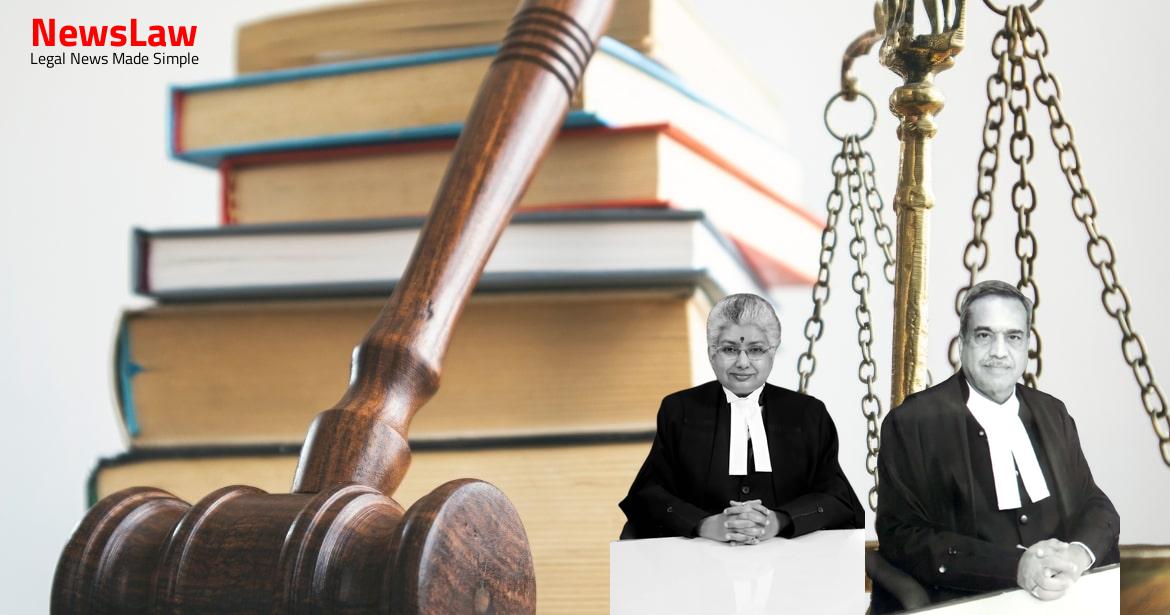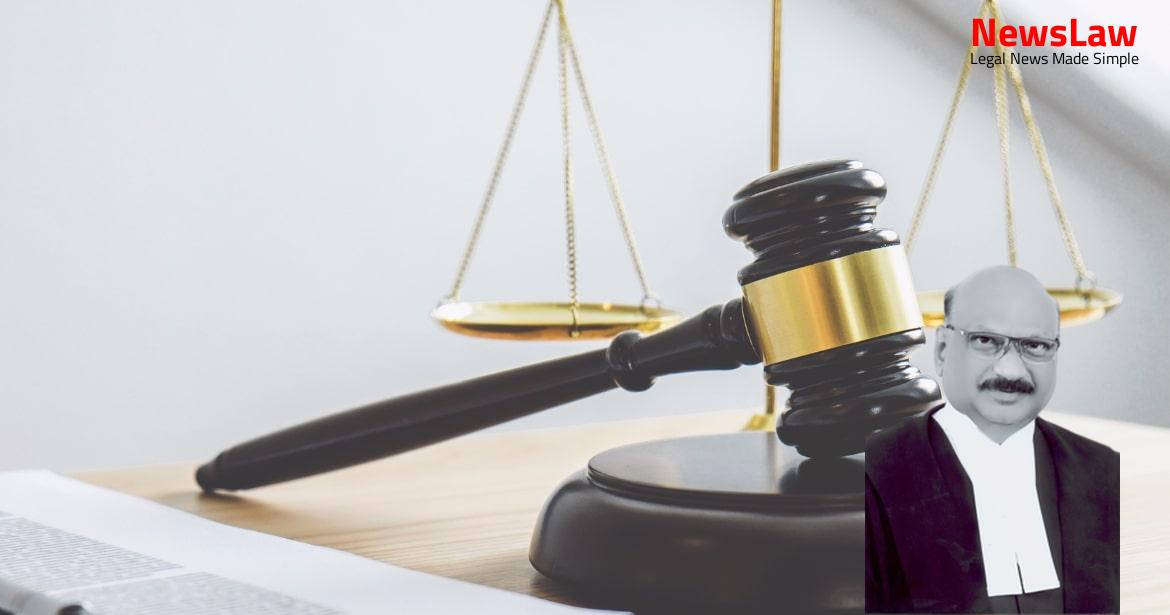Delve into the intricate legal analysis of extension orders for investigation periods in a recent case. The focus is on ensuring procedural compliance and safeguarding default bail rights. Discover the significance of court decisions in upholding procedural safeguards and protecting the rights of the accused. #LegalAnalysis #ProceduralSafeguards #DefaultBail
Facts
- The appellants are accused in FIR No. 112020082021862020 registered with Jamnagar City ‘A’ Division Police Station in Gujarat under the Gujarat Control of Terrorism and Organised Crime Act, 2015.
- Section 167 of the CrPC has been amended concerning cases involving offences under the 2015 Act.
- Sub-section (2) of Section 20 of the 2015 Act allows the Special Court to extend the investigation period from 90 days to up to 180 days.
- The Special Court can extend the period up to 180 days based on a report from the Public Prosecutor.
- The First Information Report was registered on 15 October 2020.
- Accused were arrested on different dates.
- The Single Judge of Gujarat High Court rejected the Section 482 applications on 15 September 2021.
- Special Court approved the extension of time up to 180 days on the same day the applications were filed.
Also Read: Analysis of Improper Grant of Bail in the Director of Enforcement v. Bablu Sonkar Case
Arguments
- The petitioner submitted that the proviso in Section 20 of the 2015 Act is similar to the proviso in the TADA Act and POTA, citing relevant case laws.
- There was no prejudice to the appellants due to non-production before the Special Court during extension hearings.
- The failure to produce the appellants during extension hearings was considered a mere procedural irregularity with no effect on subsequent stages like trial.
- The main contention was the lack of presence of the accused when extension orders were passed without being informed about the reports submitted by the Public Prosecutor.
- Detailed submissions were made by the appellant’s senior counsel relying on precedents like the Hitendra Vishnu Thakur case and Sanjay Dutt case.
- The presence of the appellants was not procured during the consideration of extension reports by the Special Court, violating the mandatory requirement laid down by the Constitution Bench.
- The appellants moved for default bail after not being informed about the reports and extension orders, which were not considered by the Special Court due to the granted time extension.
- Rejoinder arguments highlighted that the alleged irregularity was not listed in CrPC Section 461 and the statutory provision did not require written notice to the accused.
- The ASG emphasized that the accused has no right to be heard during the investigation stage and cited relevant decisions to support this stance.
- Extension orders were considered illegal for infringing on the appellants’ right to default bail, as per submissions by the senior counsel.
- Additional submissions were made on sub-section (5) of the 2015 Act and the applicability of certain judgments in the context of default bail.
- The petitioner pointed out that non-production of the accused and lack of written notice did not prevent the accused from objecting to the extension of time for investigation.
- References were made to other court decisions and provisions of the MCOCA to strengthen the arguments regarding the appellants’ entitlement to default bail.
- Rebuttal arguments emphasized the mandatory nature of producing the accused before the Court during extension hearings and highlighted the pandemic-related challenges that hindered physical or virtual production.
- The ASG reiterated the stance that mere non-production of the accused does not vitiate the extension order, emphasizing compliance with Section 460 of CrPC.
- The petitioner contended that the extension order was illegal for not following the requirements set by the Sanjay Dutt case, which mandates informing the accused about extension requests.
- Arguments were made regarding the accused’s entitlement to receive a copy of the extension application/report, with the ASG asserting that no written notice is required in such cases.
- Overall, the petitioner sought invalidation of the extension orders for failing to adhere to the legal mandates established by relevant court decisions.
- Appellants are not entitled to default bail.
- Applications for default bail were filed after the time was extended by the Special Court.
- Allegations against the appellants are of a very serious nature.
Also Read: Withdrawal of Offending Statements in Defamation Case
Analysis
- The decisions of the Court in the case of Hitendra Vishnu Thakur and Sanjay Dutt will apply to the facts of the case.
- In the case of Uday Mohanlal Acharya v. State of Maharashtra, it is the duty of the learned Magistrate to inform the accused of the availability of an indefeasible right under sub-section (2) of Section 167 of CrPC once it accrues to him.
- Sub-section (2) of Section 167 of CrPC provides an outer time limit to the period of remand that is proportionate to the seriousness of the alleged offense.
- Failure to complete the investigation within the defined outer limit grants the accused an indefeasible right to default bail.
- Timelines provided under sub-section (2) of Section 167, CrPC ensure that investigating officers must act swiftly and efficiently without misusing the prospect of further remand.
- Notice before granting extension for completing the investigation is not required to be a written notice to the accused, but the production of the accused at the time of consideration of the extension is sufficient.
- In the case of Sanjay Dutt, it is mandatory to produce the accused when the court considers the application for extension and inform the accused that the extension of the investigation period is being considered.
- Accused may not be entitled to a copy of the report as a matter of right, but the accused must be present when the court considers the extension application.
- In the case of Ateef Nasir Mulla v. State of Maharashtra, production of the accused at the time the court considers extension is alone sufficient notice, no written notice is required.
- The requirement of notice to the accused before granting an extension ensures that the accused is informed and given a chance to object to the extension.
- The legislature enacted sub-section (2) of Section 167 to balance providing time for investigation with protecting the civil liberties of the accused, which is of paramount importance.
- Sub-section (2) of Section 167 is linked to the constitutional commitment under Article 21 of the Constitution, ensuring protection of personal liberty against unlawful detention.
- Personal liberty and the right to default bail are integral parts of the right to personal liberty under Article 21 of the Constitution.
- The failure to give notice to the accused of reports submitted by the Public Prosecutor is a critical consideration.
- The Designated Court must ensure valid and compliant reports to avoid rendering orders vulnerable.
- The accused has the right to be present and object to extensions granted under the proviso of Section 20 of the 2015 Act.
- The duty of the Public Prosecutor in submitting a report for extension is pivotal, with a focus on progress and justification for custody extension.
- Non-compliance with the requirements may lead to the violation of rights under Article 21 of the Constitution.
- The accused must have the opportunity to oppose extension requests, ensuring procedural fairness.
- The implications of granting extension include depriving the accused of the right to default bail.
- The examination of the legality of extension orders is crucial in safeguarding the accused’s rights.
- The public prosecutor’s role is distinct from the investigating agency, emphasizing independent evaluation and legal compliance.
- The failure to produce the accused before the Court during extension consideration violates fundamental rights and procedural safeguards.
- The significance of the complete and valid public prosecutor report is highlighted for granting extensions.
- Any deviation from proper procedure risks denying the accused their right to default bail.
- A Magistrate can authorize detention of the accused for a term not exceeding 15 days in total during the investigation.
- The accused’s right to be released on bail due to the investigating agency’s default in completing the investigation can be extinguished if the investigation is completed and a charge sheet is filed within the specified period.
- If the accused is unable to furnish bail as directed by the Magistrate, continued custody beyond the specified period is authorized.
- The accused can be considered to have availed of their indefeasible right to bail if they file an application and offer to furnish bail upon direction, even if the court has not considered the application or indicated bail terms.
- Special Courts can extend the time for investigation up to 180 days upon the Public Prosecutor’s report of progress and specific reasons for detention beyond 90 days.
- Certain provisions of the Code of Criminal Procedure apply to cases involving an offence under this Act with modifications.
- The accused will not be granted bail if they were on bail for a previous offence under this Act or any other Act on the date of the offence in question.
- Public Prosecutors are required to have an opportunity to oppose bail, and the Special Court must be satisfied that there are reasonable grounds to believe the accused is not guilty and will not commit further offences while on bail.
- The police officer must provide written reasons for seeking custody from judicial custody for pre-indictment or pre-trial interrogation.
- Section 167 of the Criminal Procedure Code applies to cases involving an offence under this Act with certain modifications.
- Extension of time for completing the investigation can be up to one year, subject to reporting progress and reasons by the Public Prosecutor.
- Grant of default bail does not prevent re-arrest on cogent grounds after filing of charge sheet.
- Re-arrest cannot be made solely on the ground of filing of charge sheet; depends on facts of each case.
- Impugned orders granting extension to complete investigation and High Court judgment are quashed.
- Applications for default bail were made before filing of charge sheet.
- Appellants are entitled to default bail as an important procedural safeguard.
- Failure to produce accused before the Special Court during extension of investigation renders the orders illegal.
- Accused had no notice of extension of time granted by the court when applying for bail.
- Orders granting extension to complete investigation are illegal and appellants are entitled to default bail.
Also Read: Acquittal in IPC Offences: Lack of Test Identification Parade
Decision
- The appeals are allowed on the specified terms.
- The appellants will be granted default bail under sub-section (2) of Section 167 of CrPC.
- The conditions for the bail include furnishing a bail bond of Rs.2,00,000 with appropriate sureties, surrendering passports, not interfering with further investigation or influencing witnesses, marking regular attendance at a specific police station, and cooperating for the early conclusion of the trial.
Case Title: JIGAR @ JIMMY PRAVINCHANDRA ADATIYA Vs. STATE OF GUJARAT (2022 INSC 1013)
Case Number: Crl.A. No.-001656-001656 / 2022



